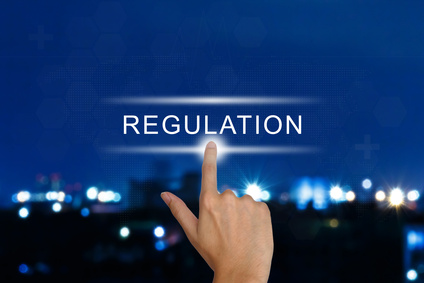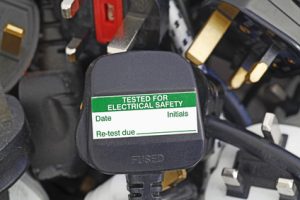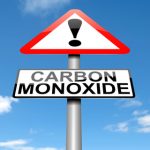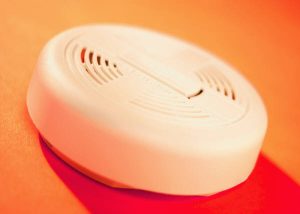Landlord Advice: Meeting Safety Standards
Published on December 13, 2014 by Sarah Mac

As a landlord or agent there is a raft of safety regulations you need to comply with. In this guide we’ve highlighted the main areas that need attention, so you know where to take action.
Furniture and Furnishings (Fire) (Safety) Regulations
The Furniture and Furnishings (Fire) (Safety) Regulations 1988, as amended in 1989 and 1993, set fire resistance standards for upholstered furniture, furnishings and other upholstered products. Under these regulations you must ensure furniture and furnishings in rented accommodation meet various standards and pass a selection of tests as follows:
- All upholstered items must be filled with fire resistant filling and have passed the match resistance test
- Combinations of cover fabric and filling must have passed the cigarette resistance test
- Anything on the following list manufactured after 1 March 1989 or sold by a retailer after 1 March 1990 must meet the above standards and be labelled accordingly:
- Beds, mattresses and headboards
- Sofa beds, futons and other convertible beds
- Loose and stretch furniture coverings
- Garden furniture that can be used inside a property
- Furniture for nurseries
- Cushions, seat pads and pillows
Not covered by the regulations are antique furniture or any made before 1950, bedclothes, carpets and curtains.
Always be sure to check for appropriate safety labels when purchasing furniture, especially second hand furniture. All new furniture and furniture covers for everything except mattresses and bed bases must have a non-detachable label. These are vital things to include in an inventory report. Inventory clerks know to report any missing labels and to confirm the date of purchase of the item because a let cannot proceed if non-compliant furniture or furnishings are present in the property.
Gas Safety Regulations
Under the Gas Safety Regulations, the owner of any gas installation, appliance or pipework is responsible for ensuring their safety in advance of letting a property. The requirement is compulsory and is managed by the Gas Safe Register (previously CORGI) and maintained and enforced by the Health and Safety Executive (HSE). A periodic inspection, known officially as a CP12, needs to be arranged using a Gas Safety Register approved contractor.
By law you need to give a copy of your Gas Safety Record to each prospective tenant before they take up residency. The records are valid for one year and must never expire for as long as the property has tenants. On renewing your Record, a new copy must be provided to the tenants within 28 days. Inventory clerks know to ensure these checks are up to date and safety records are valid as a property cannot be let without this documentation. Letting a property without the correct safety certificates in place can lead to substantial fines and even imprisonment. It’s also worth noting that since 31 October 1998, any room used as sleeping accommodation cannot contain a gas fire, gas space heater, gas water heater or gas boiler over 14KW gross input unless it is room sealed.
Electrical Equipment (Safety) Regulations
These regulations state that anyone supplying electrical equipment must ensure that it is safe and compliant. There is no compulsory requirement to ensure safety checks are carried out but it is good practice to have a portable appliance test (PAT) and fixed wire test (FWT) carried out so that you are less likely to face prosecution in the event of an issue arising.

Plugs and Sockets (Safety) Regulations
These regulations require that any plug, socket or adapter complies with the relevant current standard. In other words, they must comply with the corresponding British Standard, for example BS1363 which covers 13-amp fused plugs plus switched and un-switched sockets. Live and neutral pins on plugs must be part insulated to prevent shocks when taking plugs out of sockets – in basic terms this means all plugs must have sleeves and sockets must be compliant. Inventory reports will note any plugs that don’t appear to meet the standards and clerks will notify landlords or agents immediately.
Smoke and Carbon Monoxide Detectors
All properties built after 1992 must have a mains operated smoke detector fitted on each floor. The legislation doesn’t cover older properties. It is your responsibility to ensure smoke detectors work at the start of the tenancy. After that, providing it’s stated in the tenancy agreement, it is down to the tenant to check they are in working order and replace batteries. An inventory clerk will note whether they have checked a smoke detector is in working order at check in and will also note whether it is emitting a low battery warning. It is not a requirement to check smoke detectors at check in or check out, but they must be included in the periodic inspections.
Whilst there is no governing legislation around carbon monoxide detectors, the HSE strongly recommends their use so as to give tenants advance warning should carbon monoxide be present in the property. Any detectors present will be noted on an inventory report and recorded as checked or unchecked.
We hope you’ve found this guide useful. SRP’s AIIC inventory clerks are well versed in the details of the law surrounding safety legislation and will be able to answer any of your questions, so please don’t hesitate to get in touch.



